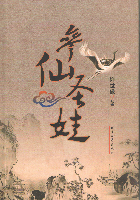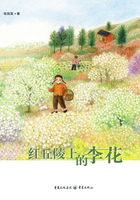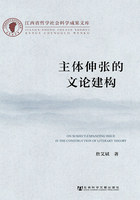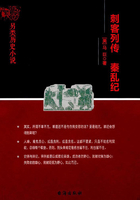HIS CREDENTIALS ACCEPTED — A BABEL OF TONGUES
It was not quite two days after the scene between Carrie and Hurstwood in the Ogden Place parlor before he again put in his appearance. He had been thinking almost uninterruptedly of her. Her leniency had, in a way, inflamed his regard. He felt that he must succeed with her, and that speedily.
The reason for his interest, not to say fascination, was deeper than mere desire. It was a flowering out of feelings which had been withering in dry and almost barren soil for many years. It is probable that Carrie represented a better order of woman than had ever attracted him before. He had had no love affair since that which culminated in his marriage, and since then time and the world had taught him how raw and erroneous was his original judgment. Whenever he thought of it, he told himself that, if he had it to do over again, he would never marry such a woman. At the same time, his experience with women in general had lessened his respect for the sex. He maintained a cynical attitude, well grounded on numerous experiences. Such women as he had known were of nearly one type, selfish, ignorant, flashy. The wives of his friends were not inspiring to look upon. His own wife had developed a cold, commonplace nature which to him was anything but pleasing. What he knew of that under-world where grovel the beat-men of society (and he knew a great deal) had hardened his nature. He looked upon most women with suspicion—a single eye to the utility of beauty and dress. He followed them with a keen, suggestive glance. At the same time, he was not so dull but that a good woman commanded his respect. Personally, he did not attempt to analyze the marvel of a saintly woman. He would take off his hat, and would silence the light-tongued and the vicious in her presence—much as the Irish keeper of a Bowery hall will humble himself before a Sister of Mercy, and pay toll to charity with a willing and reverent hand. But he would not think much upon the question of why he did so.
A man in his situation who comes, after a long round of worthless or hardening experiences, upon a young, unsophisticated, innocent soul, is apt either to hold aloof, out of a sense of his own remoteness, or to draw near and become fascinated and elated by his discovery. It is only by a roundabout process that such men ever do draw near such a girl. They have no method, no understanding of how to ingratiate themselves in youthful favor, save when they find virtue in the toils. If, unfortunately, the fly has got caught in the net, the spider can come forth and talk business upon its own terms. So when maidenhood has wandered into the moil of the city, when it is brought within the circle of the "rounder" and the roue, even though it be at the outermost rim, they can come forth and use their alluring arts.
Hurstwood had gone, at Drouet's invitation, to meet a new baggage of fine clothes and pretty features. He entered, expecting to indulge in an evening of lightsome frolic, and then lose track of the newcomer forever. Instead he found a woman whose youth and beauty attracted him. In the mild light of Carrie's eye was nothing of the calculation of the mistress. In the diffident manner was nothing of the art of the courtesan. He saw at once that a mistake had been made, that some difficult conditions had pushed this troubled creature into his presence, and his interest was enlisted. Here sympathy sprang to the rescue, but it was not unmixed with selfishness. He wanted to win Carrie because he thought her fate mingled with his was better than if it were united with Drouet's. He envied the drummer his conquest as he had never envied any man in all the course of his experience.
Carrie was certainly better than this man, as she was superior, mentally, to Drouet. She came fresh from the air of the village, the light of the country still in her eye. Here was neither guile nor rapacity. There were slight inherited traits of both in her, but they were rudimentary. She was too full of wonder and desire to be greedy. She still looked about her upon the great maze of the city without understanding. Hurstwood felt the bloom and the youth. He picked her as he would the fresh fruit of a tree. He felt as fresh in her presence as one who is taken out of the flash of summer to the first cool breath of spring.
Carrie, left alone since the scene in question, and having no one with whom to counsel, had at first wandered from one strange mental conclusion to another, until at last, tired out, she gave it up. She owed something to Drouet, she thought. It did not seem more than yesterday that he had aided her when she was worried and distressed. She had the kindliest feelings for him in every way. She gave him credit for his good looks, his generous feelings, and even, in fact, failed to recollect his egotism when he was absent; but she could not feel any binding influence keeping her for him as against all others. In fact, such a thought had never had any grounding, even in Drouet's desires.
The truth is, that this goodly drummer carried the doom of all enduring relationships in his own lightsome manner and unstable fancy. He went merrily on, assured that he was alluring all, that affection followed tenderly in his wake, that things would endure unchangingly for his pleasure. When he missed some old face, or found some door finally shut to him, it did not grieve him deeply. He was too young, too successful. He would remain thus young in spirit until he was dead.
As for Hurstwood, he was alive with thoughts and feelings concerning Carrie. He had no definite plans regarding her, but he was determined to make her confess an affection for him. He thought he saw in her drooping eye, her unstable glance, her wavering manner, the symptoms of a budding passion. He wanted to stand near her and make her lay her hand in his—he wanted to find out what her next step would be—what the next sign of feeling for him would be. Such anxiety and enthusiasm had not affected him for years. He was a youth again in feeling—a cavalier in action.
In his position opportunity for taking his evenings out was excellent. He was a most faithful worker in general, and a man who commanded the confidence of his employers in so far as the distribution of his time was concerned. He could take such hours off as he chose, for it was well known that he fulfilled his managerial duties successfully, whatever time he might take. His grace, tact, and ornate appearance gave the place an air which was most essential, while at the same time his long experience made him a most excellent judge of its stock necessities. Bartenders and assistants might come and go, singly or in groups, but, so long as he was present, the host of old-time customers would barely notice the change. He gave the place the atmosphere to which they were used. Consequently, he arranged his hours very much to suit himself, taking now an afternoon, now an evening, but invariably returning between eleven and twelve to witness the last hour or two of the day's business and look after the closing details.
"You see that things are safe and all the employees are out when you go home, George," Moy had once remarked to him, and he never once, in all the period of his long service, neglected to do this. Neither of the owners had for years been in the resort after five in the afternoon, and yet their manager as faithfully fulfilled this request as if they had been there regularly to observe.
On this Friday afternoon, scarcely two days after his previous visit, he made up his mind to see Carrie. He could not stay away longer.
"Evans," he said, addressing the head barkeeper, "if any one calls, I will be back between four and five."
He hurried to Madison Street and boarded a horse-car, which carried him to Ogden Place in half an hour.
Carrie had thought of going for a walk, and had put on a light gray woolen dress with a jaunty double-breasted jacket. She had out her hat and gloves, and was fastening a white lace tie about her throat when the housemaid brought up the information that Mr. Hurstwood wished to see her.
She started slightly at the announcement, but told the girl to say that she would come down in a moment, and proceeded to hasten her dressing.
Carrie could not have told herself at this moment whether she was glad or sorry that the impressive manager was awaiting her presence. She was slightly flurried and tingling in the cheeks, but it was more nervousness than either fear or favor. She did not try to conjecture what the drift of the conversation would be. She only felt that she must be careful, and that Hurstwood had an indefinable fascination for her. Then she gave her tie its last touch with her fingers and went below.
The deep-feeling manager was himself a little strained in the nerves by the thorough consciousness of his mission. He felt that he must make a strong play on this occasion, but now that the hour was come, and he heard Carrie's feet upon the stair, his nerve failed him. He sank a little in determination, for he was not so sure, after all, what her opinion might be.
When she entered the room, however, her appearance gave him courage. She looked simple and charming enough to strengthen the daring of any lover. Her apparent nervousness dispelled his own.
"How are you?" he said, easily. "I could not resist the temptation to come out this afternoon, it was so pleasant."
"Yes," said Carrie, halting before him, "I was just preparing to go for a walk myself."
"Oh, were you?" he said. "Supposing, then, you get your hat and we both go?"
They crossed the park and went west along Washington Boulevard, beautiful with its broad macadamized road, and large frame houses set back from the sidewalks. It was a street where many of the more prosperous residents of the West Side lived, and Hurstwood could not help feeling nervous over the publicity of it. They had gone but a few blocks when a livery stable sign in one of the side streets solved the difficulty for him. He would take her to drive along the new Boulevard.
The Boulevard at that time was little more than a country road. The part he intended showing her was much farther out on this same West Side, where there was scarcely a house. It connected Douglas Park with Washington or South Park, and was nothing more than a neatly made road, running due south for some five miles over an open, grassy prairie, and then due east over the same kind of prairie for the same distance. There was not a house to be encountered anywhere along the larger part of the route, and any conversation would be pleasantly free of interruption.
At the stable he picked a gentle horse, and they were soon out of range of either public observation or hearing.
"Can you drive?" he said, after a time.
"I never tried," said Carrie.
He put the reins in her hand, and folded his arms.
"You see there's nothing to it much," he said, smilingly.
"Not when you have a gentle horse," said Carrie.
"You can handle a horse as well as any one, after a little practice," he added, encouragingly.
He had been looking for some time for a break in the conversation when he could give it a serious turn. Once or twice he had held his peace, hoping that in silence her thoughts would take the color of his own, but she had lightly continued the subject. Presently, however, his silence controlled the situation. The drift of his thoughts began to tell. He gazed fixedly at nothing in particular, as if he were thinking of something which concerned her not at all. His thoughts, however, spoke for themselves. She was very much aware that a climax was pending.
"Do you know," he said, "I have spent the happiest evenings in years since I have known you?"
"Have you?" she said, with assumed airiness, but still excited by the conviction which the tone of his voice carried.
"I was going to tell you the other evening," he added, "but somehow the opportunity slipped away."
Carrie was listening without attempting to reply. She could think of nothing worth while to say. Despite all the ideas concerning right which had troubled her vaguely since she had last seen him, she was now influenced again strongly in his favor.
"I came out here to-day," he went on, solemnly, "to tell you just how I feel—to see if you wouldn't listen to me."
Hurstwood was something of a romanticist after his kind. He was capable of strong feelings—often poetic ones—and under a stress of desire, such as the present, he waxed eloquent. That is, his feelings and his voice were colored with that seeming repression and pathos which is the essence of eloquence.
"You know," he said, putting his hand on her arm, and keeping a strange silence while he formulated words, "that I love you?" Carrie did not stir at the words. She was bound up completely in the man's atmosphere. He would have churchlike silence in order to express his feelings, and she kept it. She did not move her eyes from the flat, open scene before her. Hurstwood waited for a few moments,
and then repeated the words.
"You must not say that," she said, weakly.
Her words were not convincing at all. They were the result of a feeble thought that something ought to be said. He paid no attention to them whatever.
"Carrie," he said, using her first name with sympathetic familiarity, "I want you to love me. You don't know how much I need some one to waste a little affection on me. I am practically alone. There is nothing in my life that is pleasant or delightful. It's all work and worry with people who are nothing to me."
As he said this, Hurstwood really imagined that his state was pitiful. He had the ability to get off at a distance and view himself objectively—of seeing what he wanted to see in the things which made up his existence. Now, as he spoke, his voice trembled with that peculiar vibration which is the result of tensity. It went ringing home to his companion's heart.
"Why, I should think," she said, turning upon him large eyes which were full of sympathy and feeling, "that you would be very happy. You know so much of the world."
"That is it," he said, his voice dropping to a soft minor, "I know too much of the world."
It was an important thing to her to hear one so well-positioned and powerful speaking in this manner. She could not help feeling the strangeness of her situation. How was it that, in so little a while, the narrow life of the country had fallen from her as a garment, and the city, with all its mystery, taken its place? Here was this greatest mystery, the man of money and affairs sitting beside her, appealing to her. Behold, he had ease and comfort, his strength was great, his position high, his clothing rich, and yet he was appealing to her. She could formulate no thought which would be just and right. She troubled herself no more upon the matter. She only basked in the warmth of his feeling, which was as a grateful blaze to one who is cold. Hurstwood glowed with his own intensity, and the heat of his passion was already melting the wax of his companion's scruples.
"You think," he said, "I am happy; that I ought not to complain? If you were to meet all day with people who care absolutely nothing about you, if you went day after day to a place where there was nothing but show and indifference, if there was not one person in all those you knew to whom you could appeal for sympathy or talk to with pleasure, perhaps you would be unhappy too.
He was striking a chord now which found sympathetic response in her own situation. She knew what it was to meet with people who were indifferent, to walk alone amid so many who cared absolutely nothing about you. Had not she? Was not she at this very moment quite alone? Who was there among all whom she knew to whom she could appeal for sympathy? Not one. She was left to herself to brood and wonder.
"I could be content," went on Hurstwood, "if I had you to love me. If I had you to go to; you for a companion. As it is, I simply move about from place to place without any satisfaction. Time hangs heavily on my hands. Before you came I did nothing but idle and drift into anything that offered itself. Since you came—well, I've had you to think about."
The old illusion that here was some one who needed her aid began to grow in Carrie's mind. She truly pitied this sad, lonely figure. To think that all his fine state should be so barren for want of her; that he needed to make such an appeal when she herself was lonely and without anchor. Surely, this was too bad.
"I am not very bad," he said, apologetically, as if he owed it to her to explain on this score. "You think, probably, that I roam around, and get into all sorts of evil? I have been rather reckless, but I could easily come out of that. I need you to draw me back, if my life ever amounts to anything."
Carrie looked at him with the tenderness which virtue ever feels in its hope of reclaiming vice. How could such a man need reclaiming? His errors, what were they, that she could correct? Small they must be, where all was so fine. At worst, they were gilded affairs, and with what leniency are gilded errors viewed. He put himself in such a lonely light that she was deeply moved.
"Is it that way?" she mused.
He slipped his arm about her waist, and she could not find the heart to draw away. With his free hand he seized upon her fingers. A breath of soft spring wind went bounding over the road, rolling some brown twigs of the previous autumn before it. The horse paced leisurely on, unguided.
"Tell me," he said, softly, "that you love me."
Her eyes fell consciously.
"Own to it, dear," he said, feelingly; "you do, don't you?"
She made no answer, but he felt his victory.
"Tell me," he said, richly, drawing her so close that their lips were near together. He pressed her hand warmly, and then released it to touch her cheek.
"You do?" he said, pressing his lips to her own.
For answer, her lips replied.
"Now," he said, joyously, his fine eyes ablaze, "you're my own girl, aren't you?"
By way of further conclusion, her head lay softly upon his shoulder.















